EFA organised a policy session on behalf of the European Lung Health Group (ELHG) at the 2025 European Health Forum Gastein (EHFG) to discuss how Europe can strengthen prevention, improve early diagnosis and deliver better care for people with lung conditions. Participants also had the chance to visit the #KeepBreathing spirometry booth and test their lung function, putting prevention into practice and raising awareness about respiratory health.
A call for stronger action on lung health
The session “Breathing Together for Change” brought together policymakers, researchers, patient organisations and civil society to explore how Europe can better respond to the growing burden of respiratory disease. More than 82 million Europeans live with chronic lung conditions, which together cost society an estimated €1.4 trillion each year. The scale of this challenge demands earlier action, stronger prevention strategies and more coordinated care.
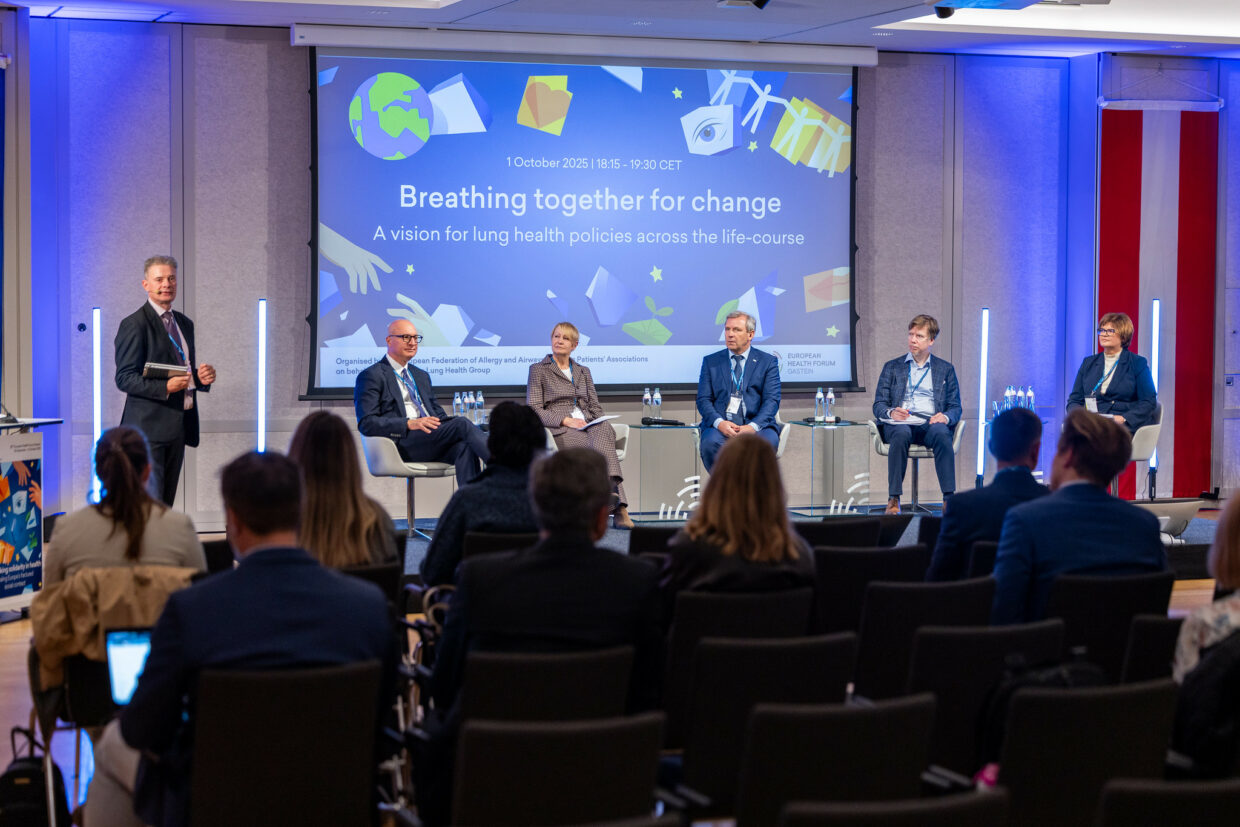
“Now is the time to strengthen diagnostics, build primary care capacity and adopt clean air policies that prevent disease before it starts,” said José Luis Castro, WHO Special Envoy for Chronic Respiratory Diseases.
The discussion repeatedly returned to the human impact. “Millions of families are affected when someone develops a chronic lung condition,” said EFA Director Susanna Palkonen. “Simple tests like spirometry should be part of regular health checks for people at risk to detect problems sooner.”
Speakers also pointed to the need for political leadership to turn evidence into action. “Smoke-free terraces in Belgium are a good step, but isolated wins are not enough,” said Cornel Radu-Loghin, Secretary General of the European Network for Smoking and Tobacco Prevention (ENSP). “We need political will and collaboration for real change.”
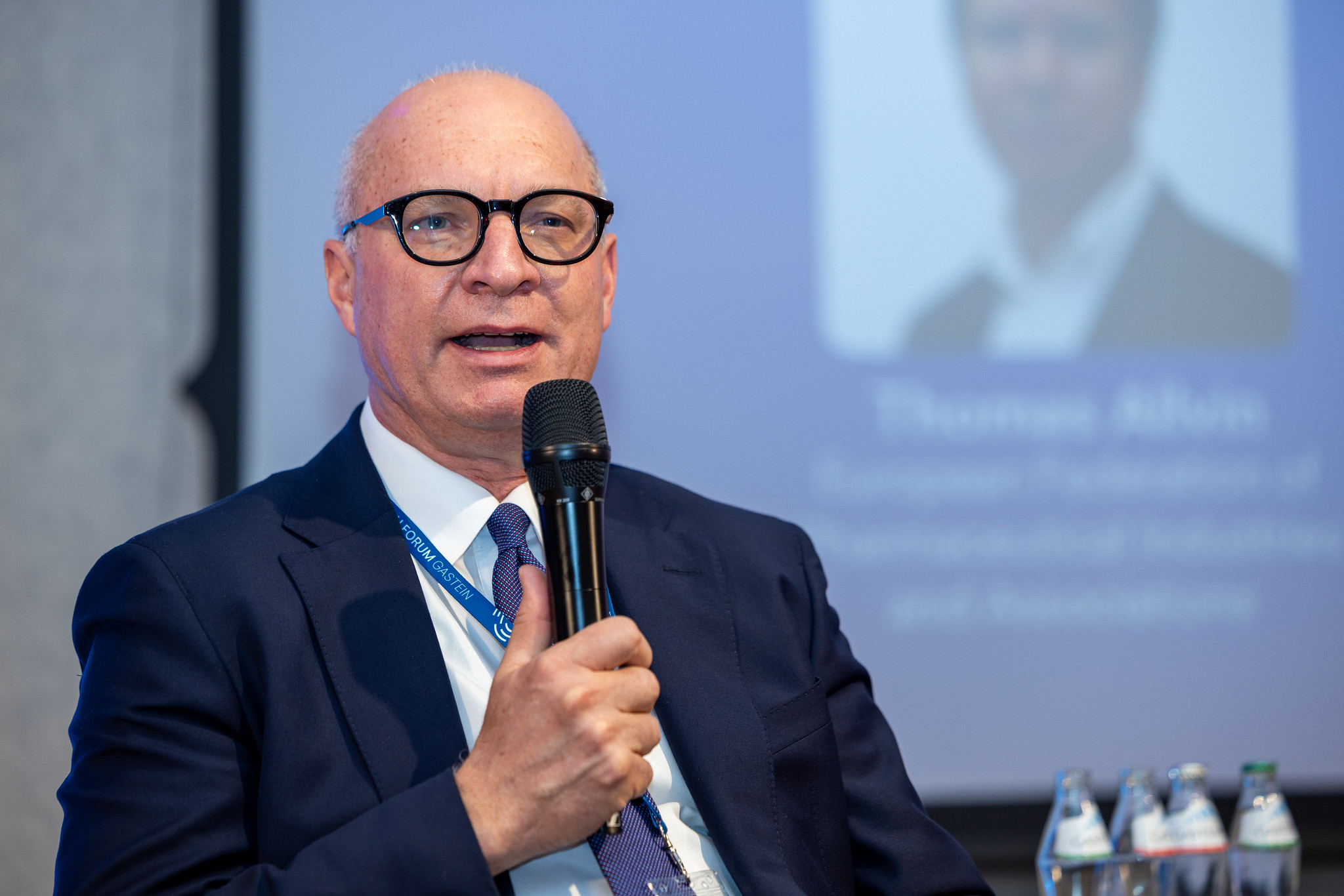
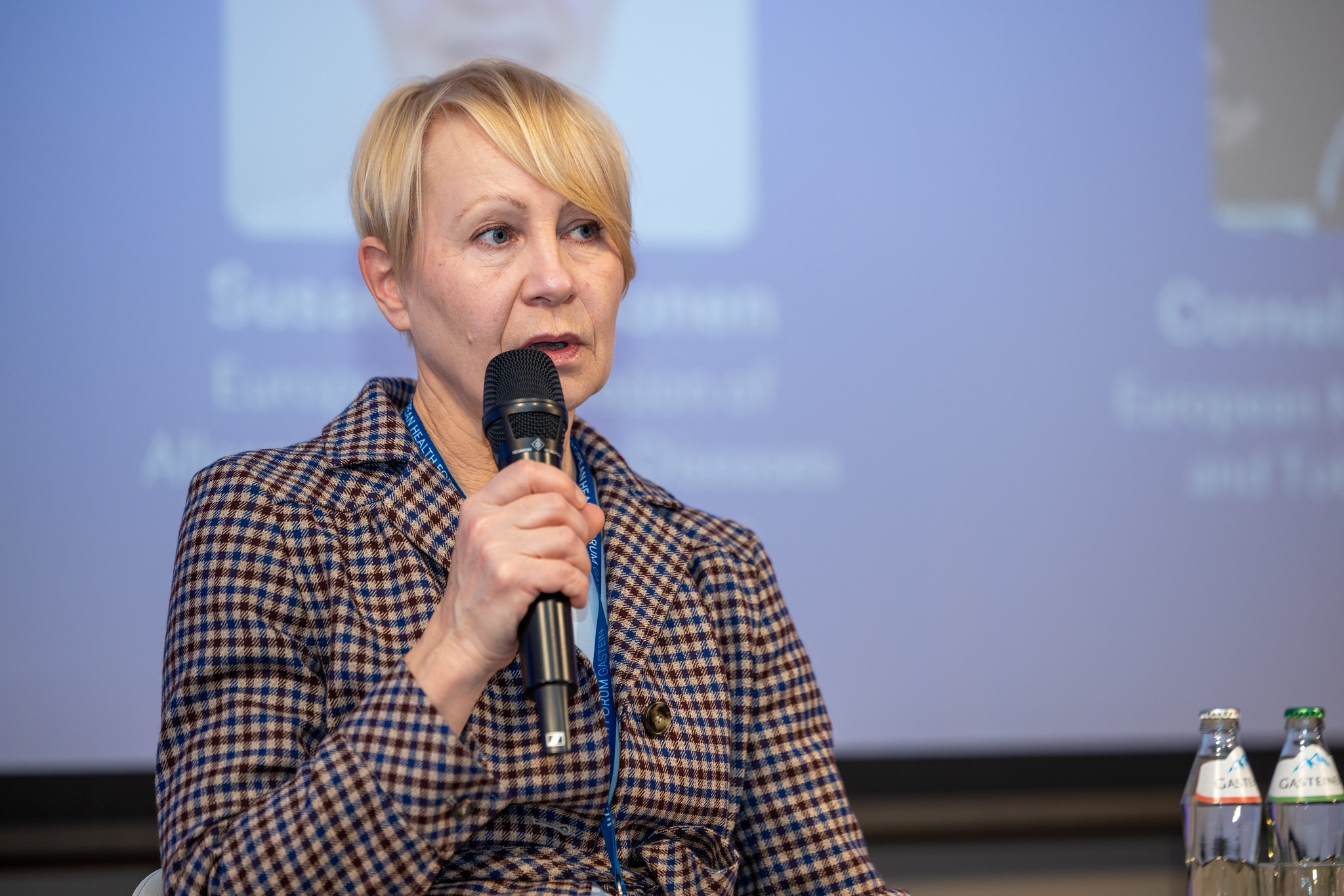
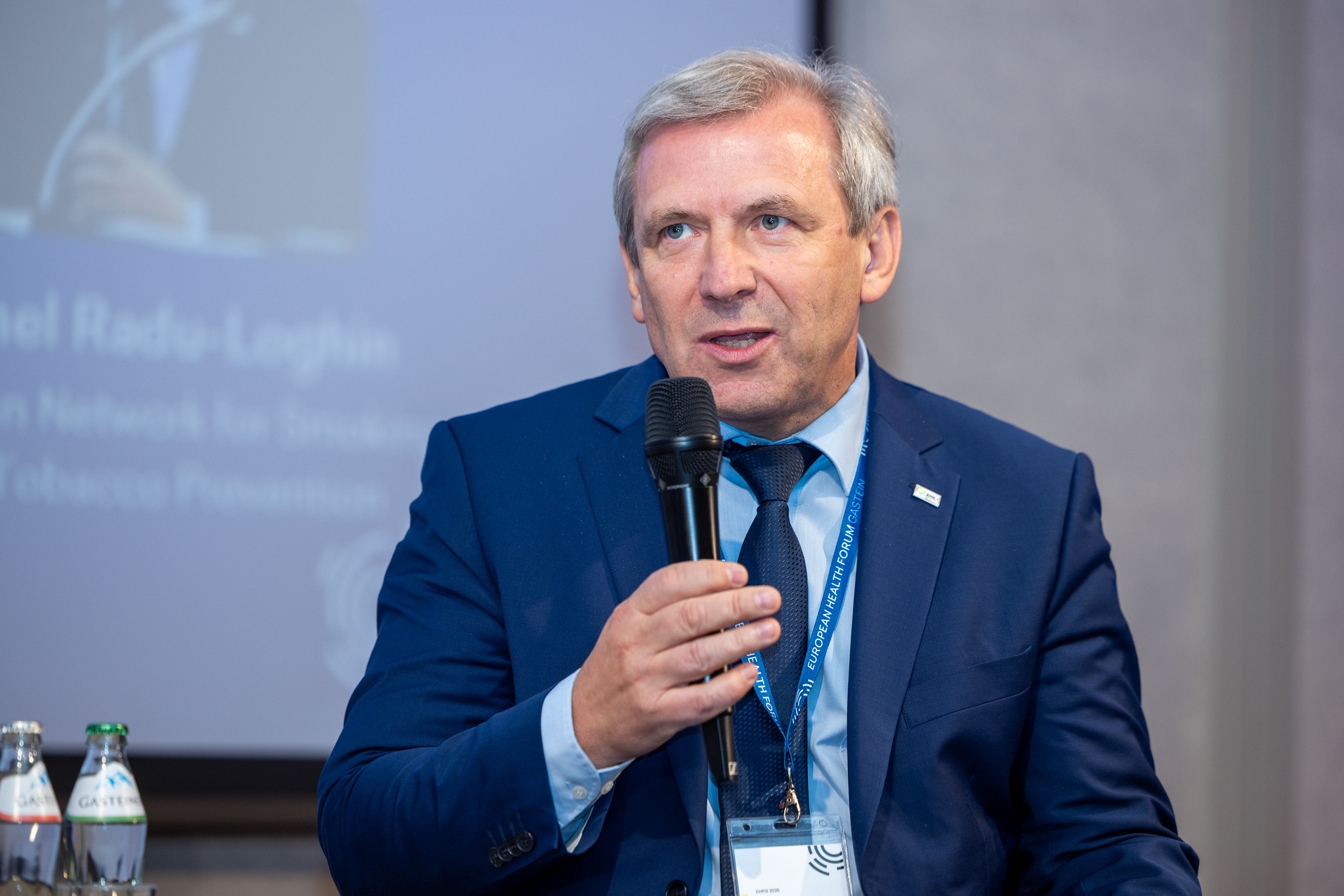
From left to right: José Luis Castro (WHO), Susanna Palkonen (EFA), Cornel Radu-Loghin (ENSP)
The importance of investment and evidence-based decision-making was another key theme. “Policy must be guided by evidence, not headlines,” said Thomas Allvin, Executive Director of Strategy and Healthcare Systems at EFPIA (European Federation of Pharmaceutical Industries). “Raising awareness, investing in research and strengthening the social contract between patients and industry can transform care.”
Since respiratory disease rarely occurs in isolation, integrated approaches are essential. “Comorbidities like cardiovascular disease make outcomes worse,” said Zsuzsanna Miklós, Head of the Department of Translational Medicine at the National Korányi Institute for Pulmonology and a representative of the JARED project. “Tackling inequalities, enabling early diagnosis and empowering patients to self-manage are all essential.”


From left to right: Thomas Allvin (EFPIA), Zsuzsanna Miklós (JARED), Susanna Palkonen (EFA)
Prevention in action: lung testing on site
Beyond the policy debate, lung health moved from theory to practice through free spirometry testing offered to EHFG participants in collaboration with Lungenunion (EFA’s Austrian member) and Sven Verschraegen from the University Hospital Ghent. Over two days, around one in four attendees took a lung function test, many for the first time. The initiative showed how a simple and quick test can raise awareness, support prevention and demonstrate how respiratory checks could become part of routine healthcare.
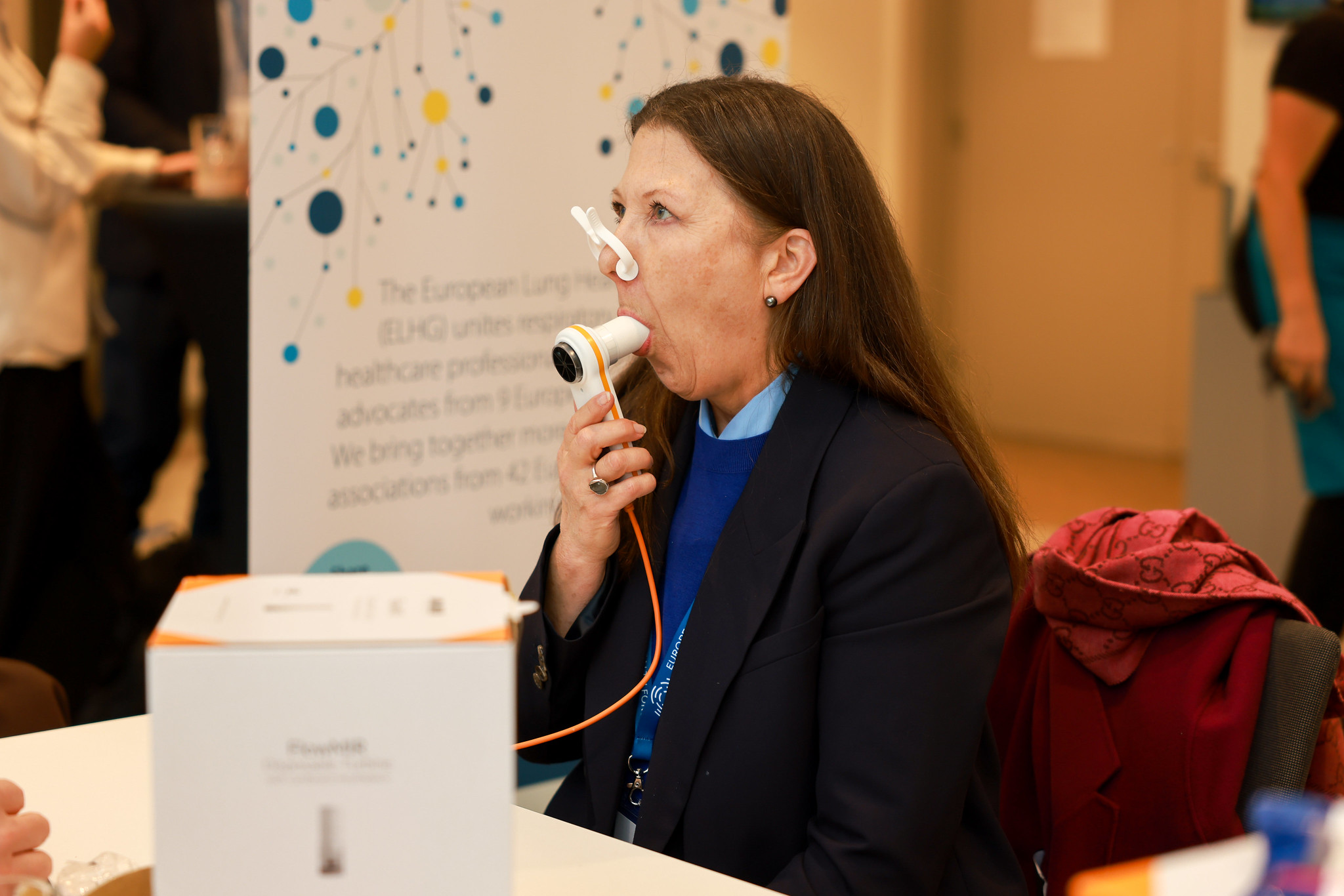
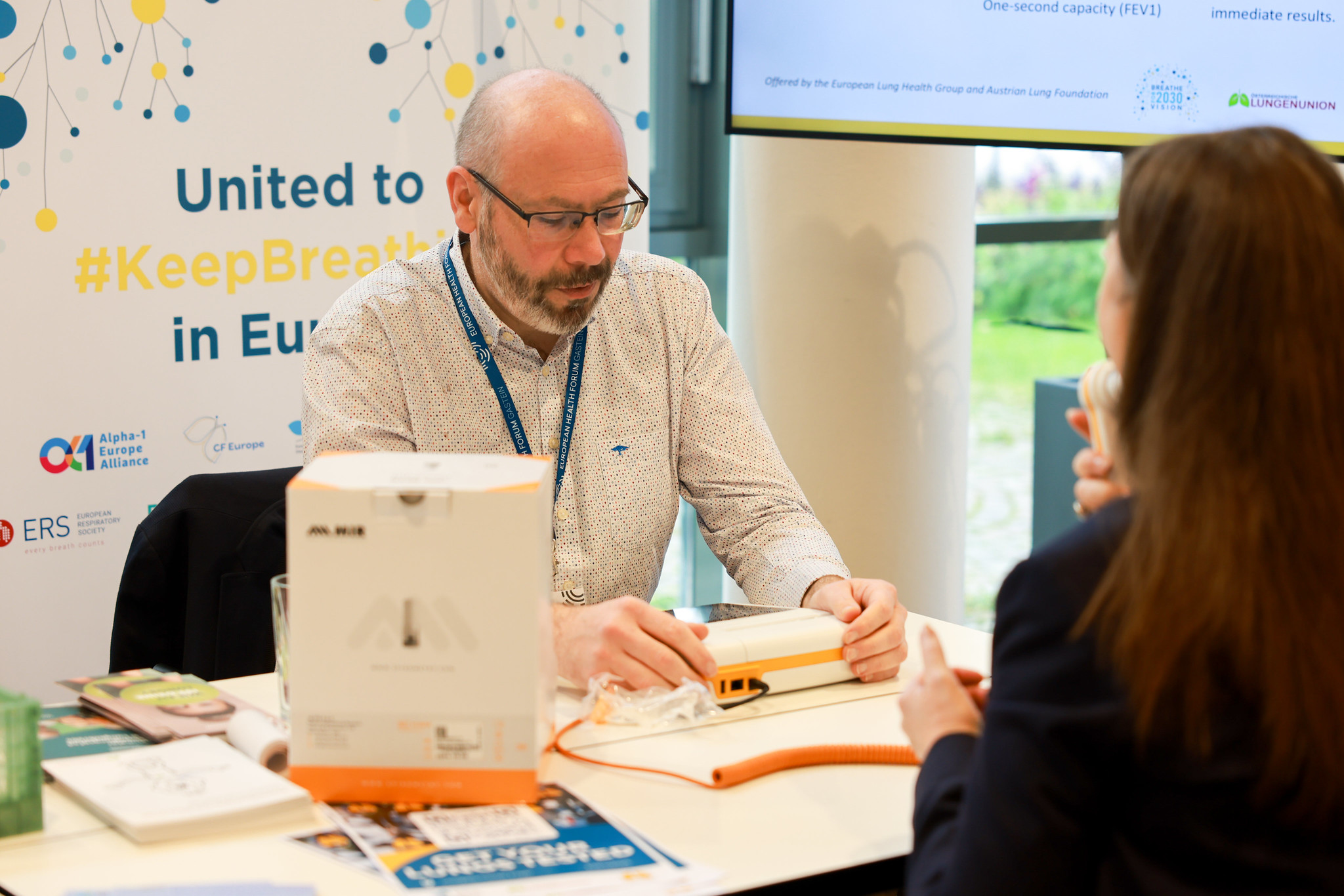
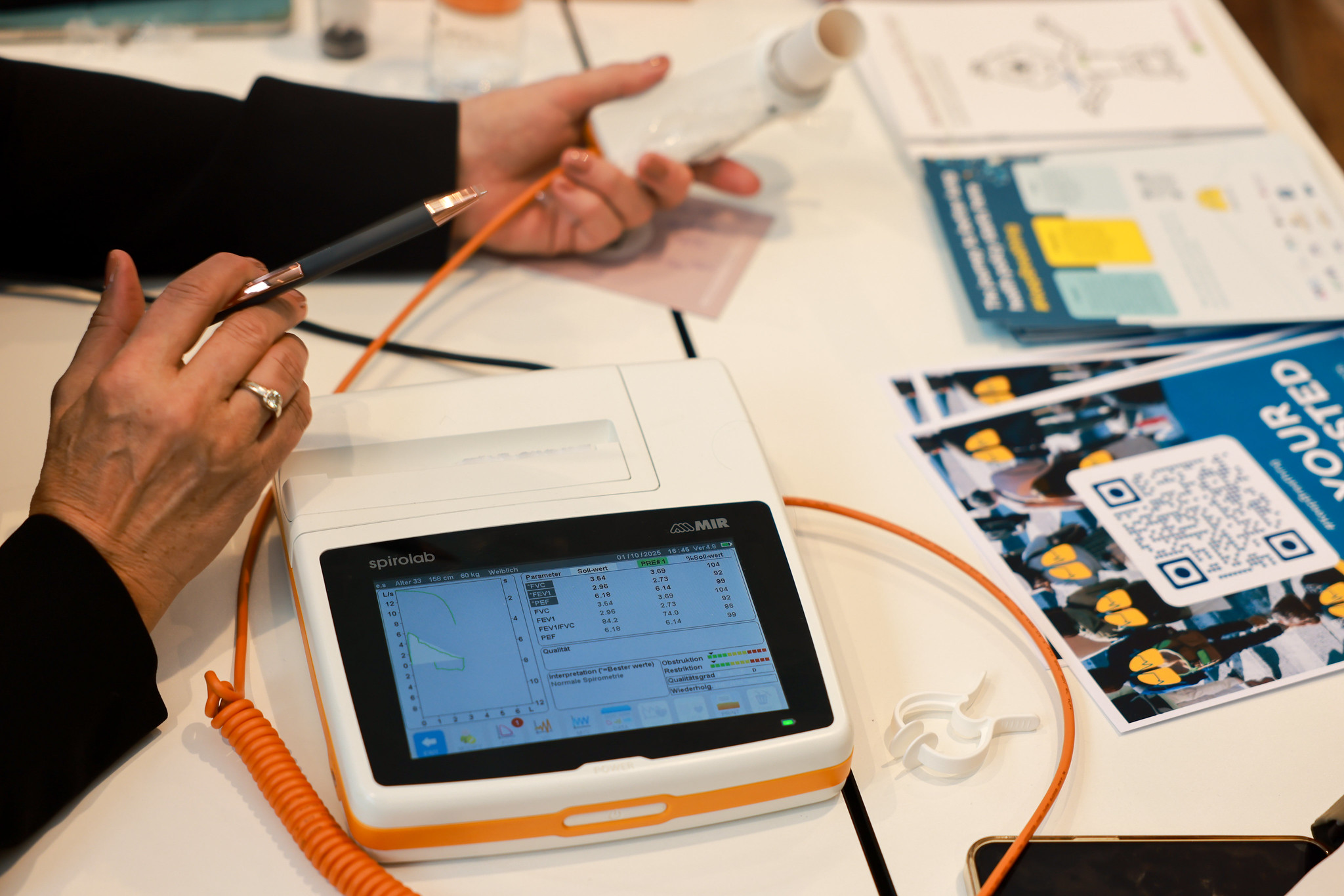
Towards a future European Lung Health Plan
The conversations in Gastein reflected a growing understanding that lung health is a core part of Europe’s future resilience, equity and well-being. Preventing disease, detecting it earlier and ensuring better care are all achievable if governments and healthcare systems commit to long-term, coordinated policies.
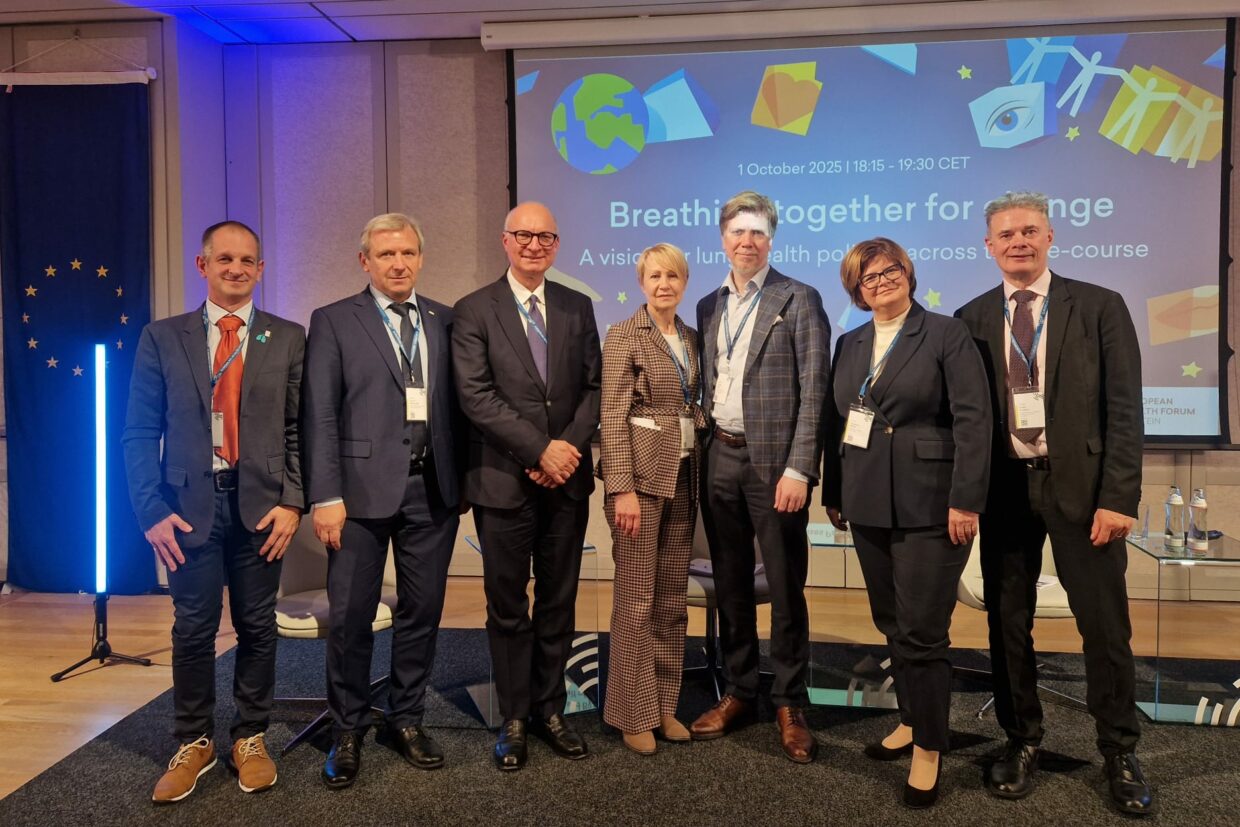
Building on this momentum, the European Lung Health Group will continue working towards a future European Lung Health Plan. This shared vision aims to combine prevention, care and investment so that everyone in Europe can #KeepBreathing. Read the full event report.